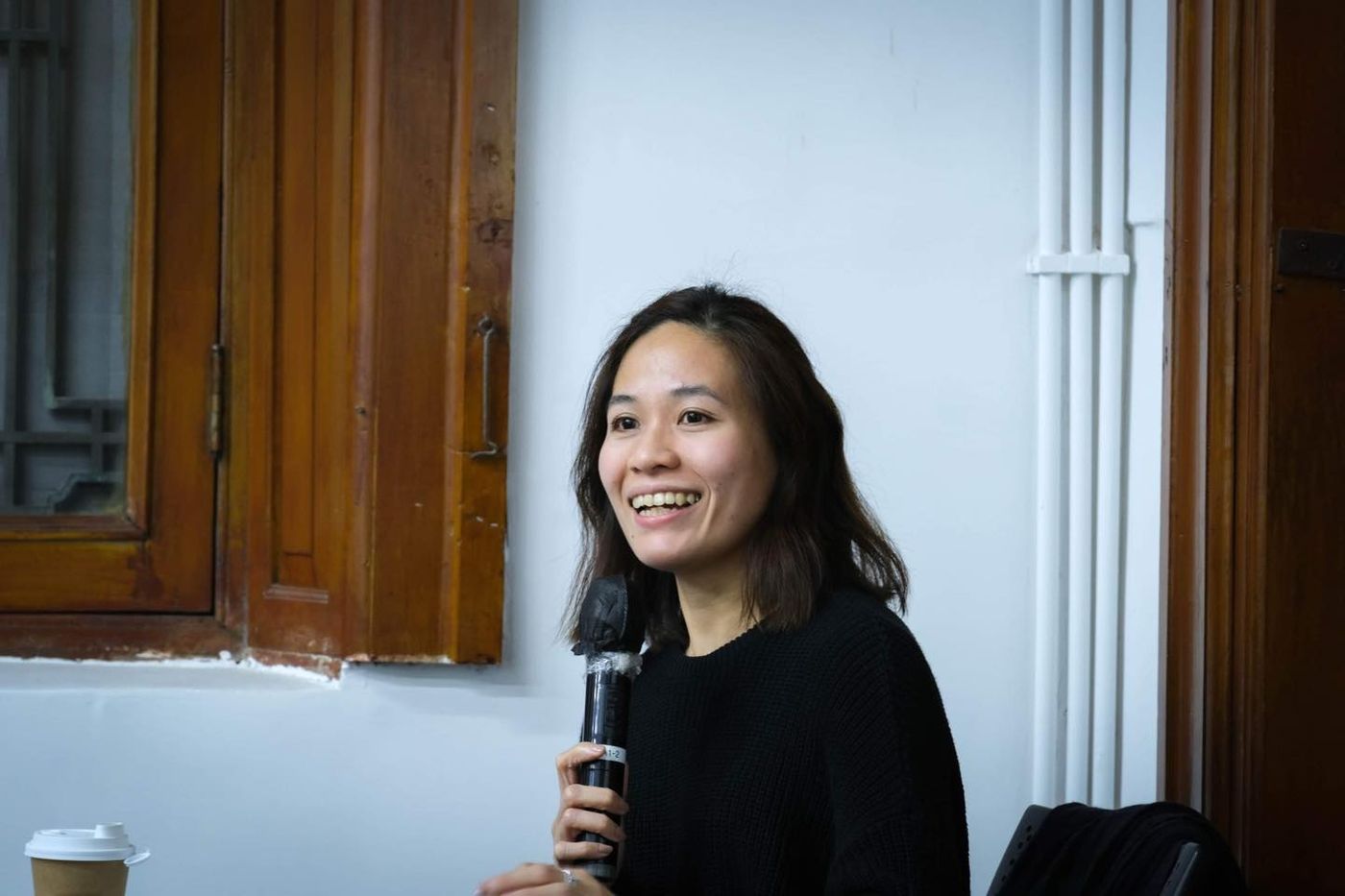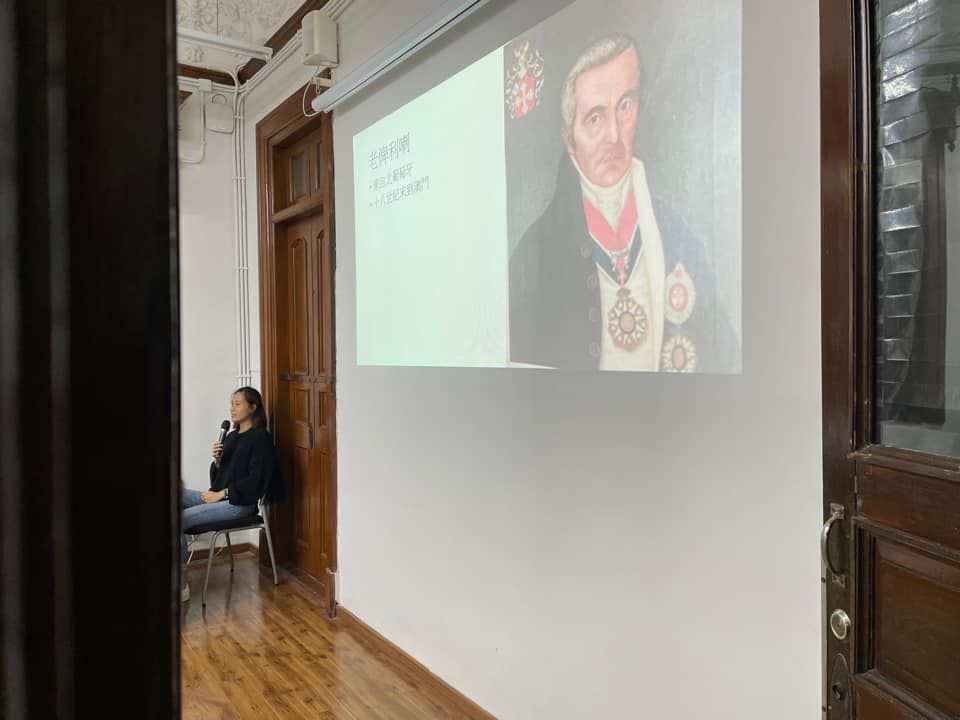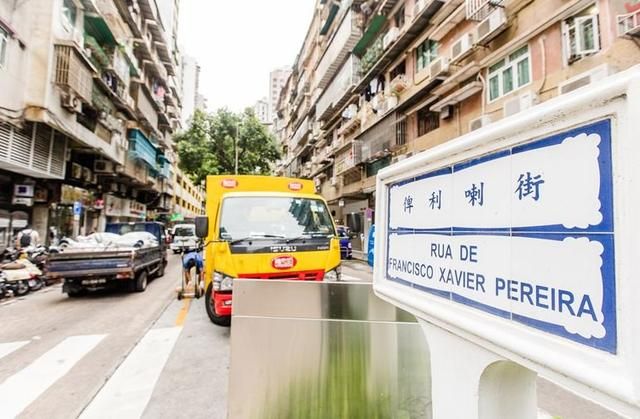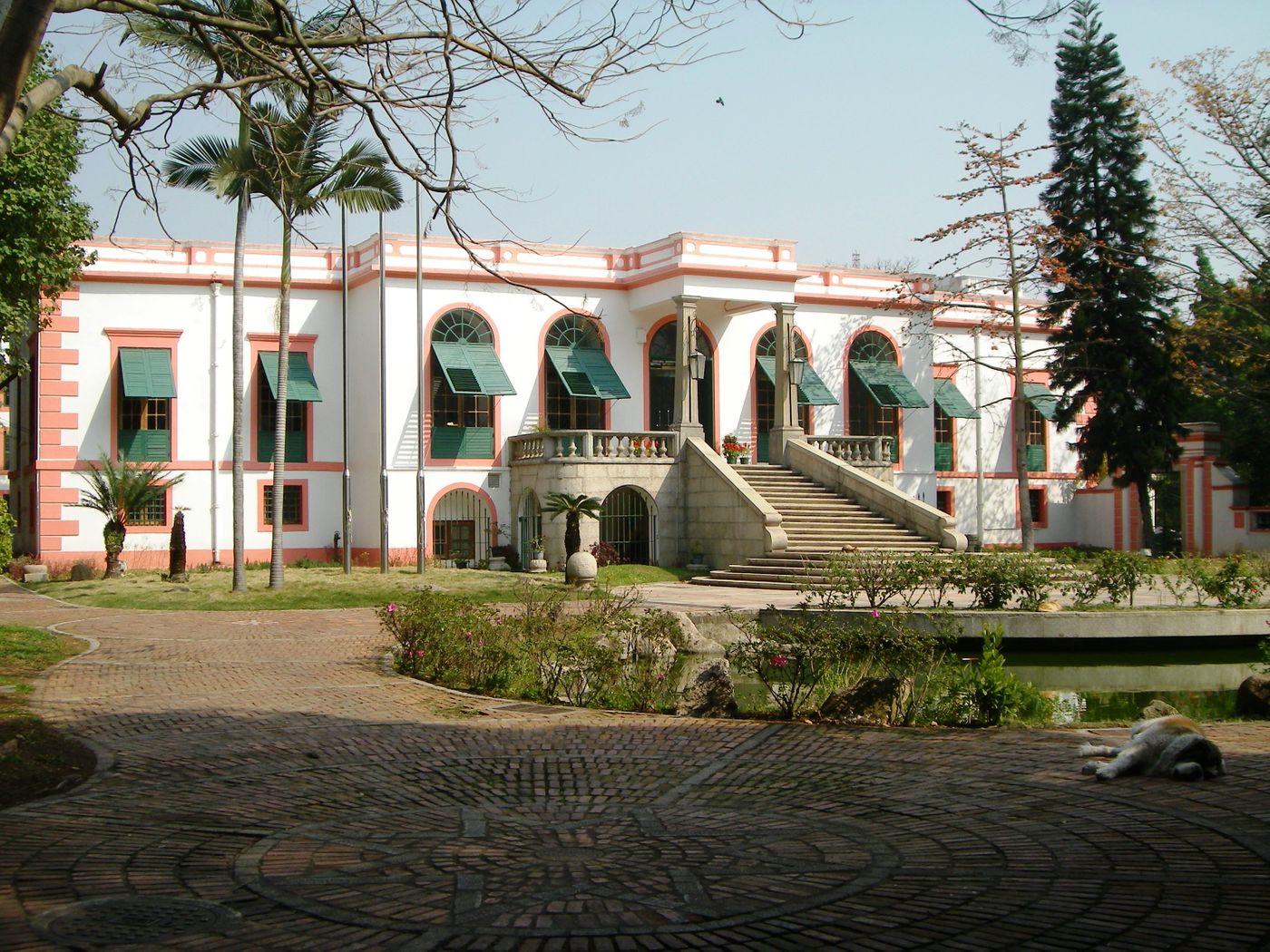
澳門90後|社會科學碩士|財經媒體|澳門研究| 生活瑣事
What are Macanese? Talking from a Macanese family|"Scholars telling stories on the border of the empire" lecture record of the second season
Author: Cheng Weiheng (Member of "Storytelling on the Frontier of the Empire")
The Macanese seem to be an ethnic group that many people care about. We once used a book written by a Macanese on the origin of the Macanese to discuss whether the fat mother can become a "brave Chinese". The response was quite good .
Therefore, we invited Chen Jiayi, a professor of the History Department of the University of Macau who studies the Macanese diaspora, to further discuss the issue of what is Macanese. If readers can't attend Chen Jiayi's lecture for some reason, it doesn't matter, let us sort out the lecture content today and let you "watch" a lecture.

What exactly are Macanese? Chen Jiayi tried to make everyone think with the experience of a Macanese family.
In 1922, a man named George. The Europeans from Bilila arrived in Lhasa, Tibet on foot. This incident caused media reports from all over the world, saying that a British person went through many hardships to reach Lhasa. George was also very excited and sent a telegram from China to his younger brother, claiming that he was the first British to arrive in Lhasa.
Clever readers, especially readers in Macau (a street in Macau is named after Bilila) should notice that Bilila should be a Portuguese surname, so why would George emphasize his British identity? It all started with George's great-grandfather, old Billy La.
In the 18th century, the old Perilla, who lived in Portugal, felt that there were very few opportunities for upward mobility, so he decided to go to Macau to seek opportunities. It's funny to say that the old Billy's way of seeking upward mobility is by no means the mainstream way, and it's even a little sideways.

It is said that the ratio of male to female in Macao was severely imbalanced at that time, and the number of females far exceeded that of males. In addition, upper-class Portuguese females were not interested in males other than European males. It was very difficult to find a good husband. sought after.
Sure enough, after arriving in Macau, old Pilila married a Macanese woman, and her father-in-law was the chairman of the Church of Mercy. After the old Bilila successfully played the first "beautiful man card", there will be a follow-up unexpectedly.
His first wife died shortly after, and he married another woman from a large Macanese family, and then the second wife died soon after, and he married the sister of the second wife as the third. wives. In this way, every marriage made old Billyla's life better.
As a listener, I can't help wondering whether there are many ulterior stories behind these beauties?

Although the old Billy climbed up smoothly, and the second generation continued to keep the family business left by his father, as the family continued to expand, it seemed that he could not take care of the many family members. George's father saw that there were fewer and fewer development opportunities in Macau, so he went to Hong Kong Bao Shun Company as an intern, and later became a partner of the company.
The speaker, Chen Jiayi, said that it is extremely rare for a Macanese to be a partner in a foreign firm in Hong Kong, which shows that George's father is indeed capable, rather than simply relying on his father's shade.
Although George's father is capable, he actually went back to the old Billy's way and used the "beauty trick". In 1858, George's father decided to leave Hong Kong to develop in London. He even wrote a letter to the Brazilian government, requesting a "armor" to demonstrate his aristocratic status.
After George's father successfully obtained the "armor", he declared himself a Portuguese aristocrat, often participated in social activities in London's upper class, and finally married a British aristocratic woman. George's father chose a life trajectory similar to that of his ancestor, old Perilla, which can be described as another interesting point of history.

George's father later fully integrated into British society and was described as the most British-style Macanese. It is conceivable that George's identity in such an "British environment" must be an Englishman. In addition, George's personal experience is also quite interesting. He was a military attache stationed in China, participated in the suppression of the Boxer Rebellion, and knew Chinese himself.
The first generation of the Perila family was formed by the marriage of Portuguese and Macanese. In the third generation, some family members chose to leave Macau to develop in the United Kingdom, and married the British nobles to give birth to the fourth generation. family? Macanese family? British family? Or the Macau family?
Readers may wish to visit the Macau Oriental Foundation (formerly the villa of the Bilila family) all the way, read this article along the way, and think about this issue slowly.
#Number of articles: 8️⃣9️⃣
👉Lecture in February: Daily Stories of the Underclass in the Qin and Han Dynasties (Ma Zengrong, Assistant Professor of History, University of Macau)
👉Macau learns the 16th universe

Like my work?
Don't forget to support or like, so I know you are with me..

在帝國邊陲講故事

四個社會科學和歷史背景的作者,嘗試訴說一座名叫「澳門」的看不見的城市。它的故事不止關乎自身,也關乎背後的帝國和邊陲。 👇我們的故事|Podcast|免費電子報|Patreon https://linktr.ee/macaology_empire
Comment…